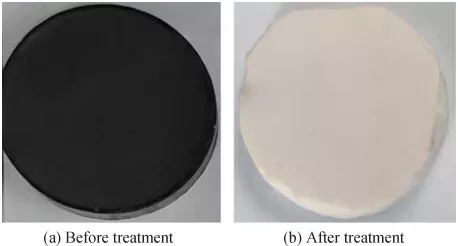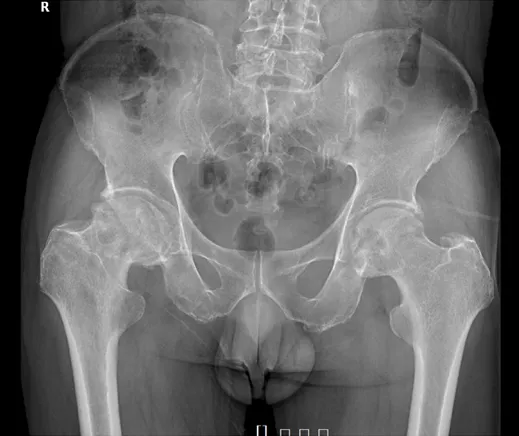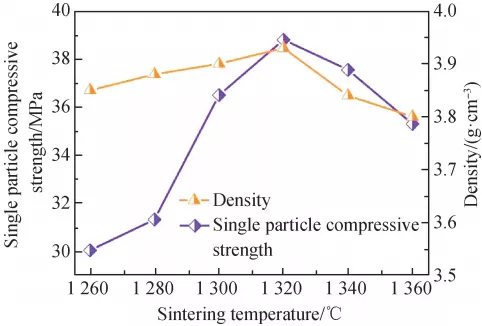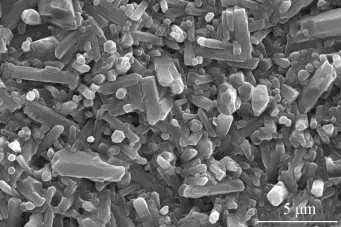Abstract: Due to the orthogonal-tetragonal and tetragonal-cubic phase transitions of BaTiO3 in the range of -55 ℃ to 150 ℃, the sharp dielectric peaks corresponding to these phase transitions make the dielectric properties of BaTiO3 ceramics difficult to meet the temperature stability requirements of X8R. In this paper, the BaTiO3 based fine-grained ceramics were prepared by using 50 nm nano-BaTiO3 powder and a small amount of cordierite (MgO-Al2O3-SiO2, MAS) glass to meet the dielectric temperature specification of X8R. The results indicate that the crystal structure of BaTiO3 based ceramics at room temperature changes from tetragonal phase to pseudo-cubic phase with the addition of MAS glass. The average grain size decreases significantly from 1.904 μm for pure BaTiO3 ceramics to 183 nm for BaTiO3 based ceramics with 0.5% (mass fraction) MAS glass. Meantime, although the dielectric constant of BaTiO3 based ceramics decreases, the dielectric loss and temperature stability of dielectric properties are greatly improved. When the MAS glass content is 0.5%, the dielectric properties of BaTiO3 based fine-grained ceramics are as follows: the dielectric constant of 984 and dielectric loss of 0.006 5 at 1 kHz and room temperature, meeting the temperature specification requirements of X8R.
Key words: BaTiO3, X8R, dielectric property, fine grain, MAS glass, dielectric loss
Declaration: This article is provided by CERADIR™ users or obtained from Internet, the content does not represent the position of CERADIR™. We are not responsible for the authenticity/accuracy of the article, especially the effects of the products concerned. This article is for study only, it does not constitute any investment or application advice. For reprinting, please contact the original author. If it involves the copyright and/or other issues, please contact us and we will deal with it asap! CERADIR™ has the interpretation of this declaration.







